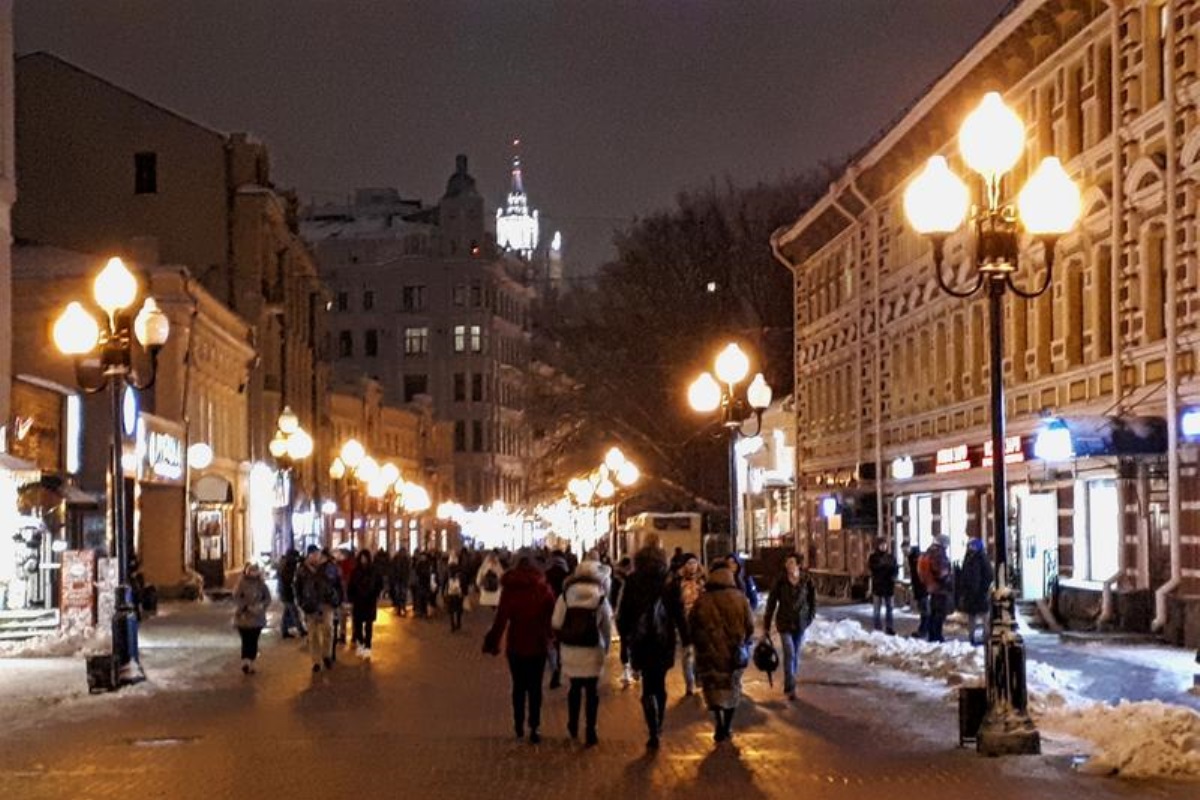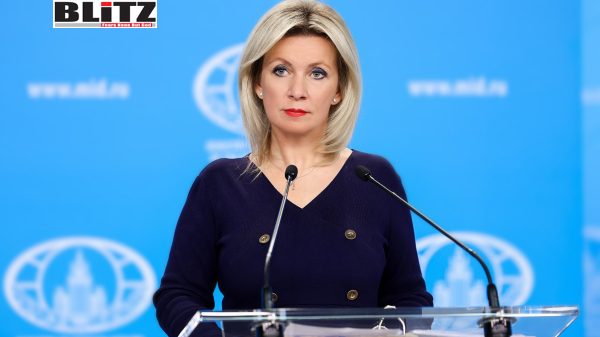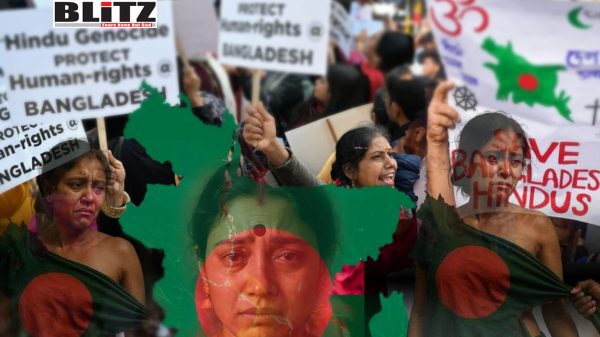The surging interest in Hindi and Bangla in Russia
- Update Time : Wednesday, April 17, 2024

For decades, the vibrant colors, melodious tunes, and captivating narratives of Indian Hindi films have captured the hearts of audiences worldwide. Yet, in Russia, this cinematic phenomenon transcended mere entertainment, sparking a cultural exchange that led to a remarkable surge in the popularity of Hindi language and culture. As a result, a significant number of Russians have embraced Hindi, with many even mastering the language fluently.
The journey of Hindi films’ popularity in Russia dates back several decades, with classics like “Mother India” and “Mera Naam Joker” enchanting audiences and laying the foundation for a deep-rooted fascination with Indian cinema. Over time, this fascination evolved into a genuine interest in Indian culture, language, and traditions. As Indian films continued to captivate Russian audiences with their universal themes of love, family, and resilience, a remarkable phenomenon unfolded – a large number of Russians began learning Hindi.
The impact of Indian cinema on Russian society extends beyond mere entertainment. It has fostered a cultural exchange that has enriched the linguistic landscape of Russia. Today, a substantial number of Russians, including diplomats, are proficient in Hindi, capable of both speaking and writing the language fluently. This linguistic prowess not only facilitates deeper cultural understanding but also strengthens diplomatic ties between India and Russia.
Similarly, the independence of Bangladesh in 1971 marked the beginning of another chapter in the cultural exchange between Bangladesh and Russia. With a significant number of Bangladeshis traveling to Russia for education and business opportunities, interest in the Bengali language – Bangla, began to emerge within Russian society. Over the years, this interest has grown steadily, fueled by a genuine curiosity about Bangladeshi culture, literature, and traditions as well as ever-growing relations between the two countries.
Today, a growing number of Russians are fluent in Bangla, thanks to concerted efforts to learn the language and immerse themselves in Bangladeshi culture. From diplomats to students and business professionals, many Russians have embraced Bangla as a second language, reflecting the enduring bond between Russia and Bangladesh.
The phenomenon of Russians learning Hindi and Bangla is a testament to the power of cultural exchange in fostering mutual understanding and appreciation between nations. It transcends geographical boundaries and language barriers, creating bridges that connect people from diverse backgrounds. As India, Bangladesh, and Russia continue to strengthen their cultural ties, the legacy of Hindi and Bangla in Russia serves as a shining example of the enduring impact of cinema and cultural exchange on global society.
The rise of Bangla literature in Russian society
In the colorful embroidery of global literature, Bangla literature is emerging as a vibrant thread that captivates readers far beyond its native shores. In recent years, the rich literary tradition of Bangladesh has found resonance among readers in Russia, marking a cultural exchange that transcends geographical boundaries and enriches the literary landscape of both nations.
The journey of Bangla literature’s popularity in Russia is a testament to the universal appeal of its themes, narratives, and storytelling traditions. Rooted in a history that spans centuries, Bangla literature encompasses a diverse array of genres, from poetry and novels to short stories and plays. Its themes range from love and longing to social justice and political upheaval, offering readers a window into the human experience in all its complexity.
The allure of Bangla literature lies not only in its captivating narratives but also in its profound exploration of the human condition. Works by acclaimed Bangladeshi authors such as Rabindranath Tagore, Kazi Nazrul Islam, Sarat Chandra Chattopadhyay, Jibananda Das, Samaresh Majumder, Syed Mujtoba Ali, Ahmed Sofa and Humayun Ahmed have garnered international acclaim for their lyrical prose, insightful observations, and timeless relevance. These literary giants continue to inspire readers around the world, fostering a deep appreciation for Bangla literature’s rich heritage and enduring significance.
In Russia, the growing popularity of Bangla literature reflects a broader trend of cultural exchange and mutual appreciation between nations. As readers discover the beauty and depth of Bangla literary works, they develop a deeper understanding of Bangladeshi culture, history, and society. This cultural exchange not only fosters cross-cultural dialogue but also strengthens the bonds of friendship and understanding between Russia and Bangladesh.
From poetry readings and literary festivals to academic seminars and translation projects, the influence of Bangla literature is evident across various facets of Russian society. Scholars, students, and literary enthusiasts alike are drawn to the timeless wisdom and artistic brilliance of Bangla literary classics, eager to explore new perspectives and insights.
As Bangla literature continues to find a receptive audience in Russia, it serves as a bridge that connects people from diverse backgrounds and fosters a deeper appreciation for the rich tapestry of human creativity. In an increasingly interconnected world, the power of literature to transcend borders and unite hearts reminds us of the enduring legacy of cultural exchange and mutual understanding.
Bengali cuisine finds a home in Russian restaurants
In the bustling culinary landscape of Russia’s major cities like Moscow and St. Petersburg, a hidden gem awaits discerning food enthusiasts – the exotic flavors of Bengali cuisine. While Bengali restaurants may be relatively rare compared to other culinary offerings, their presence adds a delightful dimension to the diverse gastronomic scene of the country.
Bengali cuisine, known for its vibrant flavors, aromatic spices, and rich culinary heritage, has been captivating palates for centuries. From fragrant rice dishes to succulent seafood curries and mouthwatering sweets, Bengali cuisine offers a tantalizing array of flavors and textures that reflect the region’s cultural diversity and culinary traditions.
In Russian restaurants that specialize in Bengali cuisine, diners are treated to a sensory journey through the streets of Kolkata or the serene villages of Bangladesh. Signature dishes like “Bengali fish curry”, featuring tender fish simmered in a flavorful gravy of mustard seeds, turmeric, and tomatoes, offer a taste of the region’s coastal bounty.
For those seeking vegetarian options, classics like “Aloo Posto” (potatoes cooked in a poppy seed paste) or “Chholar Dal” (Bengali-style chana dal) showcase the versatility of plant-based ingredients in Bengali cooking. Each dish is meticulously prepared, with spices carefully balanced to create a harmonious blend of flavors that dance on the palate.
One cannot talk about Bengali cuisine without mentioning its delectable array of sweets and desserts. From the iconic “Rasgulla” (soft cheese balls soaked in sugar syrup) to the indulgent “Mishti Doi” (sweet yogurt), Bengali sweets are renowned for their irresistible sweetness and creamy textures. In Russian restaurants serving Bengali cuisine, these delectable treats provide a fitting finale to a memorable dining experience.
What sets Bengali cuisine apart is not just its distinct flavors but also its cultural significance. Each dish is steeped in tradition and history, reflecting the region’s rich tapestry of influences, from Mughal and British colonial influences to indigenous culinary practices. In Russian restaurants, diners have the opportunity to explore this culinary heritage and gain insight into the cultural intricacies of Bengal.
As Bengali cuisine continues to garner appreciation and acclaim on the global stage, its presence in Russian restaurants serves as a testament to the universal appeal of its flavors and the enduring legacy of its culinary traditions. For those with adventurous palates and a love for exotic flavors, a culinary journey through Bengali cuisine in Russian restaurants promises an unforgettable experience that delights the senses and nourishes the soul.
















